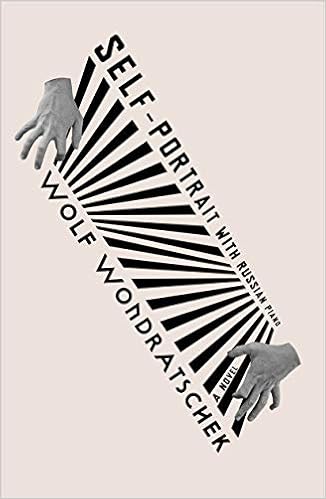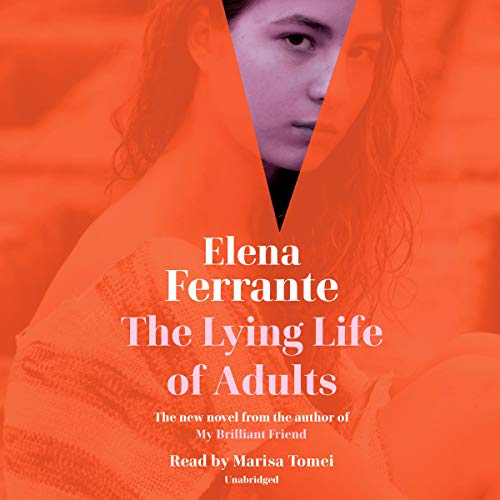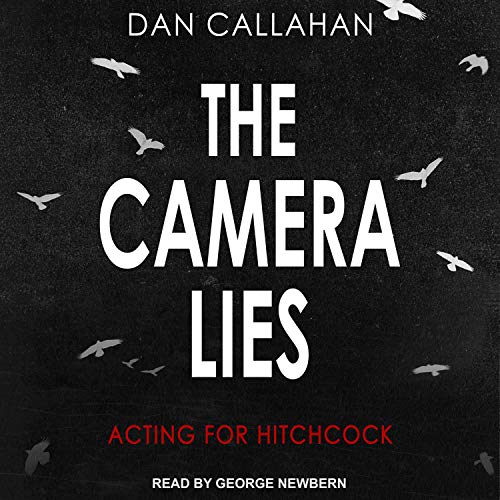Welcome to the Library’s virtual New Book Shelf. Here we will present new titles for you to browse and check out. Titles listed here will be monographs published in the current year. If you see a title you would like to borrow, please click the link below the item and sign in with your Hawk ID and Password to request a loan.
The Frightened Ones

In her therapist’s waiting room in Damascus, Suleima meets a strange and reticent man named Naseem, and they soon begin a tense affair. But when Naseem, a writer, flees Syria for Germany, he sends Suleima the unfinished manuscript of his novel. To Suleima’s surprise, she and the novel’s protagonist are uncannily similar. As she reads, Suleima’s past overwhelms her and she has no idea what to trust – Naseem’s pages, her own memory, or nothing at all?
Narrated in alternating chapters by Suleima and the mysterious woman portrayed in Naseem’s novel, The Frightened Ones is a boundary-blurring, radical examination of the effects of oppression on one’s sense of identity, the effects of collective trauma, and a moving window into life inside Assad’s Syria.
https://search.lib.uiowa.edu/permalink/f/9i2ftm/01IOWA_ALMA21789601860002771
Will
Will’s mother’s hokey homily, Waste not, want not… hisses in his ears as he oscillates furiously on the spot, havering on the threshold between the bedroom and the dying one… all the while cradling the plastic leech of the syringe in the crook of his arm. Oscillating furiously, and, as he’d presses the plunger home a touch more… and more, he hears it again and again: Waaaste nooot, waaant nooot..! whooshing into and out of him, while the blackness wells up at the periphery of his vision, and his hackneyed heart begins to beat out weirdly arrhythmic drum fills – even hitting the occasional rim-shot on his resonating rib cage. He waits, paralysed, acutely conscious, that were he simply to press his thumb right home, it’ll be a cartoonish death: That’s all folks! as the aperture screws shut forever.

https://search.lib.uiowa.edu/permalink/f/9i2ftm/01IOWA_ALMA21727731090002771
Three Brothers: Memories of My Family
![Three Brothers: Memories of My Family by [Yan Lianke, Carlos Rojas]](https://m.media-amazon.com/images/I/5181+IPxQfL.jpg)
In this heartfelt, intimate memoir, Yan Lianke brings the reader into his childhood home in Song County in Henan Province, painting a vivid portrait of rural China in the 1960s and ’70s. Three Brothers is a literary testament to the great humanity and small joys that exist even in times of darkness.
With lyricism and deep emotion, Yan chronicles the extraordinary lives of his father and uncles, as well as his own. Living in a remote village, Yan’s parents are so poor that they can only afford to use wheat flour on New Year and festival days, and while Yan dreams of fried scallion buns, and even steals from his father to buy sesame seed cakes. He yearns to leave the village, however he can, and soon novels become an escape. He resolves to become a writer himself after reading on the back of a novel that its author was given leave to remain in the city of Harbin after publishing her book. In the evenings, after finishing back-breaking shifts hauling stones at a cement factory, sometimes sixteen hours long, he sets to work writing. He is ultimately delivered from the drudgery and danger of manual labor by a career in the Army, but he is filled with regrets as he recalls these years of scarcity, turmoil, and poverty.
A philosophical portrait of grief, death, home, and fate that gleams with Yan’s quick wit and gift for imagery, Three Brothers is a personal portrait of a politically devastating period, and a celebration of the power of the family to hold together even in the harshest circumstances.
https://search.lib.uiowa.edu/permalink/f/9i2ftm/01IOWA_ALMA21768472570002771
Fresh Water for Flowers

Violette Toussaint is the caretaker at a cemetery in a small town in Bourgogne. Casual mourners, regular visitors, and sundry colleagues – gravediggers, groundskeepers, and a priest – visit her to warm themselves in her lodge, where laughter, companionship, and occasional tears mix with the coffee she offers them. Her life is lived to the rhythms of their funny, moving confidences.
But her routine is disrupted by the arrival of the local police chief, who insists on scattering the ashes of his recently deceased mother on the gravesite of a complete stranger. Soon it becomes clear that his inexplicable gesture is intertwined with Violette’s own difficult past.
With Fresh Water for Flowers, Valérie Perrin has given listeners an intimately told story that tugs on the heartstrings about a woman who believes obstinately in happiness, despite it all. A number-one best seller in France, it is a heartwarming and tender story that will stay with listeners long after they finish it.
https://search.lib.uiowa.edu/permalink/f/9i2ftm/01IOWA_ALMA21787669060002771
Self Portrait with Russian Piano

Vienna is an uncanny, magical, and sometimes brutally alienating city. The past lives on in the cafes where lost souls come to kill time and hash over the bygone glories of the twentieth century―or maybe just a recent love affair. Here, in one of these cafes, an anonymous narrator meets a strange character, “like someone out of a novel”: a decrepit old Russian named Suvorin.
A Soviet pianist of international renown, Suvorin committed career suicide when he developed a violent distaste for the sound of applause. This eccentric gentleman―sometimes charming, sometimes sulky, sometimes disconcertingly frank―knows the end of his life is approaching, and allows himself to be convinced to tell his life story. Over a series of coffee dates, punctuated by confessions, anecdotes, and rages―and by the narrator’s schemes to keep his quarry talking―a strained friendship develops between the two men, and it soon becomes difficult to tell who is more dependent on whom.
Rhapsodic and melancholic, with shades of Vladimir Nabokov, W. G. Sebald, Hans Keilson, and Thomas Bernhard, Wolf Wondratschek’s Self-Portrait with Russian Piano is a literary sonata circling the eternal question of whether beauty, music, and passion are worth the sacrifices some people are compelled to make for them.
https://search.lib.uiowa.edu/permalink/f/9i2ftm/01IOWA_ALMA21789967680002771
From Slave Cabins to the White House: Homemade Citizenship in African American Culture

Koritha Mitchell analyzes canonical texts by and about African American women to lay bare the hostility these women face as they invest in traditional domesticity. Instead of the respectability and safety granted white homemakers, black women endure pejorative labels, racist governmental policies, attacks on their citizenship, and aggression meant to keep them in “their place.”
Tracing how African Americans define and redefine success in a nation determined to deprive them of it, Mitchell plumbs the works of Frances Harper, Zora Neale Hurston, Lorraine Hansberry, Toni Morrison, Michelle Obama, and others. These artists honor black homes from slavery and post-emancipation through the Civil Rights era to “post-racial” America. Mitchell follows black families asserting their citizenship in domestic settings while the larger society and culture marginalize and attack them, not because they are deviants or failures but because they meet American standards.
Powerful and provocative, From Slave Cabins to the White House illuminates the links between African American women’s homemaking and citizenship in history and across literature.
https://search.lib.uiowa.edu/permalink/f/9i2ftm/01IOWA_ALMA21732615270002771
F*ck Your Diet

By the time Chloé Hilliard was 12, she wore a size 12 – both shoe and dress – and stood over six feet tall. Fitting in was never an option. That didn’t stop her from trying. Cursed with a “slow metabolism”, “baby weight”, and “big bones” – the fat trilogy – Chloe turned to fad diets, starvation, pills, and workouts, all of which failed.
Realizing that everything – from government policies to corporate capitalism – directly impacts our relationship with food and our waistlines, Chloé changed her outlook on herself and hopes others will do the same for themselves.
The perfect mix of cultural commentary, conspiracies, and confessions, F*ck Your Diet pokes fun at the all too familiar, misguided quest for better health, permanent weight loss, and a sense of self-worth.
https://search.lib.uiowa.edu/permalink/f/9i2ftm/01IOWA_ALMA21727817910002771
True or False

“Fake news” is a term you’ve probably heard a lot in the last few years, but it’s not a new phenomenon. From the ancient Egyptians to the French Revolution to Jack the Ripper and the Founding Fathers, fake news has been around as long as human civilization. But that doesn’t mean that we should just give up on the idea of finding the truth.
In True or False, former CIA analyst Cindy Otis takes listeners through the history and impact of misinformation over the centuries, sharing stories from the past and insights that listeners today can gain from them. Then, she shares lessons learned in more than a decade working for the CIA, including actionable tips on how to spot fake news, how to make sense of the information we receive each day, and, perhaps most importantly, how to understand and see past our own information biases so that we can think critically about important issues and put events happening around us into context.
https://search.lib.uiowa.edu/permalink/f/9i2ftm/01IOWA_ALMA21789688480002771
The Lying Life of Adults

Giovanna’s pretty face is changing, turning ugly, at least so her father thinks. Giovanna, he says, looks more like her Aunt Vittoria every day. But can it be true? Is she really changing? Is she turning into Aunt Vittoria, a woman she hardly knows but whom her mother and father clearly despise? Surely there is a mirror somewhere in which she can see herself as she truly is.
Giovanna is searching for her reflection in two kindred cities that fear and detest one another: a Naples of the heights, which assumes a mask of refinement, and a Naples of the depths, a place of excess and vulgarity. She moves between both in search of the truth, but neither city seems to offer answers or escape.
Named one of 2016’s most influential people by Time Magazine and frequently touted as a future Nobel Prize winner, Elena Ferrante has become one of the world’s most read and beloved writers. With this novel about the transition from childhood to adolescence to adulthood, Ferrante proves once again that she deserves her many accolades.
In The Lying Life of Adults, listeners will discover another gripping, highly addictive, and totally unforgettable Neapolitan story.
https://search.lib.uiowa.edu/permalink/f/9i2ftm/01IOWA_ALMA21789967890002771
The Camera Lies

Alfred Hitchcock is said to have once remarked, “Actors are cattle”, a line that has stuck in the public consciousness ever since. For Hitchcock, acting was a matter of contrast and counterpoint, valuing subtlety and understatement over flashiness. He felt that the camera was duplicitous and directed actors to look and act conversely. In The Camera Lies, author Dan Callahan spotlights the many nuances of Hitchcock’s direction throughout his career, from Cary Grant in Notorious to Janet Leigh in Psycho. Delving further, he examines the ways that sex and sexuality are presented through Hitchcock’s characters, reflecting the director’s own complex relationship with sexuality.
Detailing the fluidity of acting, Callahan examines the spectrum of treatment and direction Hitchcock provided well- and lesser-known actors alike, including Ingrid Bergman, Henry Kendall, Joan Barry, Robert Walker, Jessica Tandy, Kim Novak, and Tippi Hedren. As Hitchcock believed, the best actor was one who could “do nothing well” – but behind an outward indifference to his players was a sophisticated acting theorist who often drew out great performances. The Camera Lies unpacks Hitchcock’s legacy both as a director who continuously taught audiences to distrust appearance and as a man with an uncanny insight into the human capacity for deceit and misinterpretation.
https://search.lib.uiowa.edu/permalink/f/9i2ftm/01IOWA_ALMA21789972950002771
Spies and Scholars

From the seventeenth to the nineteenth century, the Russian Empire made concerted efforts to collect information about China. It bribed Chinese porcelain-makers to give up trade secrets, sent Buddhist monks to Mongolia on intelligence-gathering missions, and trained students at its Orthodox mission in Beijing to spy on their hosts. From diplomatic offices to guard posts on the Chinese frontier, Russians were producing knowledge everywhere, not only at elite institutions like the Academy of Sciences in St. Petersburg. But that information was secret, not destined for wide circulation.
Gregory Afinogenov distinguishes between the kinds of knowledge Russia sought over the years and argues that they changed with the shifting aims of the state and its perceived place in the world. In the seventeenth century, Russian bureaucrats were focused on China and the forbidding Siberian frontier. They relied more on spies, including Jesuit scholars stationed in China. In the early nineteenth century, the geopolitical challenge shifted to Europe: rivalry with Britain drove the Russians to stake their prestige on public-facing intellectual work, and knowledge of the East was embedded in the academy. None of these institutional configurations was especially effective in delivering strategic or commercial advantages. But various knowledge regimes did have their consequences. Knowledge filtered through Russian espionage and publication found its way to Europe, informing the encounter between China and Western empires.
Based on extensive archival research in Russia and beyond, Spies and Scholars breaks down long-accepted assumptions about the connection between knowledge regimes and imperial power and excavates an intellectual legacy largely neglected by historians.
https://search.lib.uiowa.edu/permalink/f/18gddib/TN_cdi_crossref_primary_10_1162_jinh_r_01680
The Riddle of the Rosetta

In 1799, a French Army officer was rebuilding the defenses of a fort on the banks of the Nile when he discovered an ancient stele fragment bearing a decree inscribed in three different scripts. So begins one of the most familiar tales in Egyptology – that of the Rosetta Stone and the decipherment of Egyptian hieroglyphs. This book draws on fresh archival evidence to provide a major new account of how the English polymath Thomas Young and the French philologist Jean-François Champollion vied to be the first to solve the riddle of the Rosetta.
Jed Buchwald and Diane Greco Josefowicz bring to life a bygone age of intellectual adventure. Much more than a decoding exercise centered on a single artifact, the race to decipher the Rosetta Stone reflected broader disputes about language, historical evidence, biblical truth, and the value of classical learning. The authors paint compelling portraits of Young and Champollion, two gifted intellects with altogether different motivations. Young disdained Egyptian culture and saw Egyptian writing as a means to greater knowledge about Greco-Roman antiquity. Champollion, swept up in the political chaos of Restoration France and fiercely opposed to the scholars aligned with throne and altar, admired ancient Egypt and was prepared to upend conventional wisdom to solve the mystery of the hieroglyphs.
https://search.lib.uiowa.edu/permalink/f/9i2ftm/01IOWA_ALMA21801261910002771